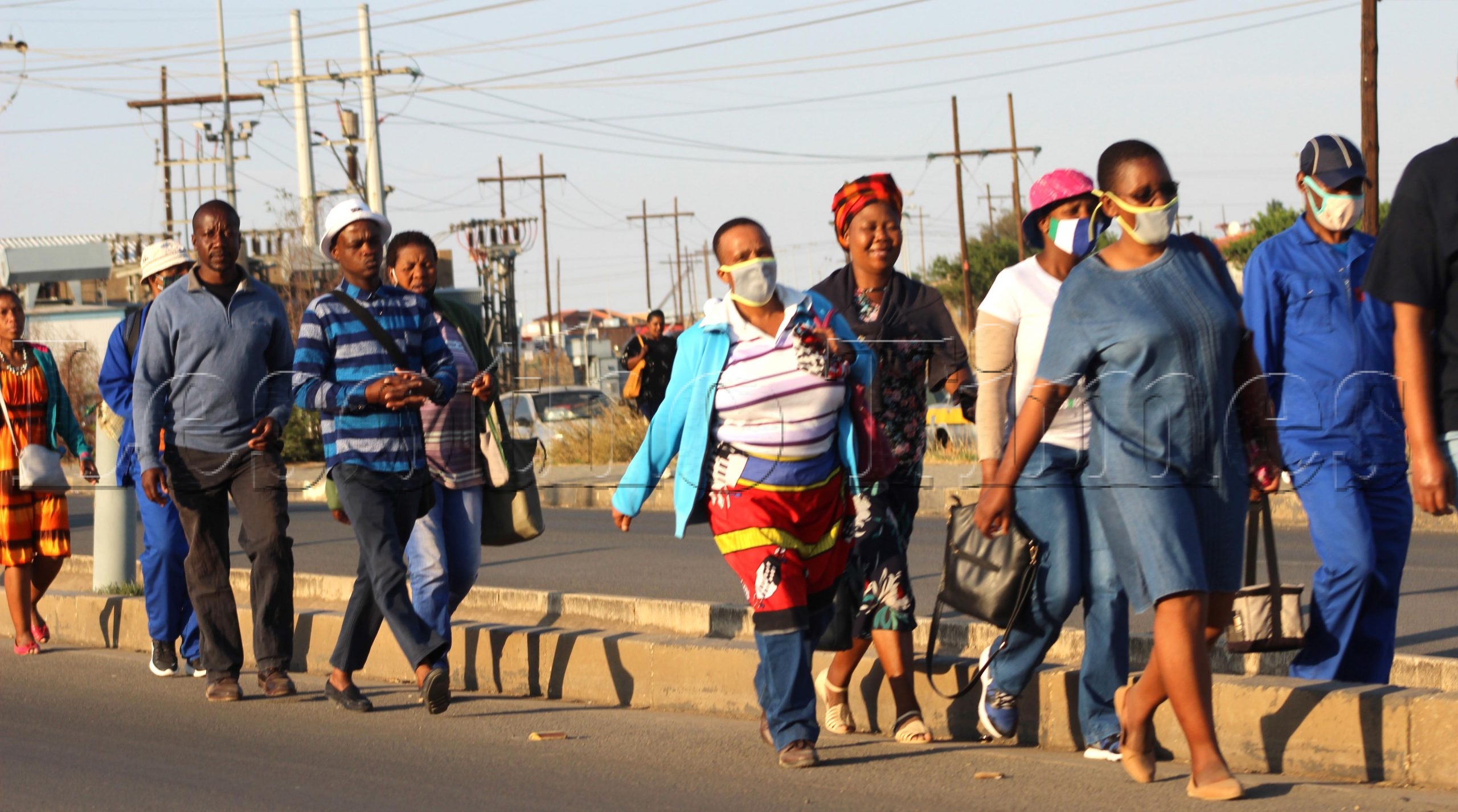…as two textile giants mull shutdown over US tariffs
Moorosi Tsiane
LESOTHO’s once-thriving textile industry, long considered the backbone of the national economy, is now staring down a catastrophic barrel, with more than 5000 jobs hanging in the balance.
One of the country’s textile giants, Lesotho Precious Garments (PTY) Ltd and its subsidiary, Maseru E-Textiles (PTY) Ltd, are preparing to shut down operations entirely due to a devastating new 50 percent tariff rate imposed by the United States.
The tariffs, announced by US President Donald Trump in April 2025, have already begun wreaking havoc on Lesotho’s textile exports. Although the tariffs have been temporarily suspended for three months to allow for negotiations, American buyers have halted their orders, opting to wait for a definitive resolution.
Mr Trump’s administration has made it clear that only countries able to secure favourable trade terms will be spared from the steep hikes. But so far, Lesotho has been unable to get a seat at the negotiation table.
Efforts by the Lesotho government to initiate talks have hit roadblocks. The government was initially snubbed by US Trade Representative, Jamieson Greer, who did not attend a scheduled meeting with Lesotho’s delegation in Pretoria, on 24 April 2025. A follow-up virtual meeting was expected to take place last week, but as of now, the US has not responded, leaving the situation in limbo.
The threat of a complete shutdown has sparked alarm among workers and unions. The workers representative, United Textiles Employees Union (UNITE)’s deputy general secretary, Potloloane Monare, confirmed this week that both Precious Garments and Maseru E-Textiles have already reached out to the union to discuss a possible three-month closure to begin with.
He said the factories told them their hope was that the temporary pause will give the government time to renegotiate the punitive trade terms with the US administration.
“This is a direct attack on our economy. If the government does not act swiftly, we could see a total collapse of the textile sector. This is a sector that has long been the backbone of Lesotho’s job market. Many factories have already shut down, and others have reduced their workforce. The potential for further job losses is deeply alarming,” said Mr Monare.
He highlighted the critical role played by Precious Garments, one of the largest textile producers in Lesotho.
“They receive a high volume of orders from the United States and often subcontract that work to smaller companies like their subsidiary Maseru E-Textiles, and others such as TZICC Clothing Manufacturers, Lucky Manufacturing. If Precious Garments shuts down, those smaller factories will also be forced to close.”
Mr Monare warned that the looming shutdown of Precious Garments and Maseru E-Textiles was just the beginning.
“If the government fails to come up with lasting solutions, more closures are likely to follow. In their meeting invitation, the investors told us they are seriously considering a temporary shutdown because the new tariffs are unaffordable. They are not receiving new orders, as clients are hesitant due to the uncertainty and high costs.”
If there is no solution after the period of the initial closure, they will then shut down permanently.
Following the tariff announcement last month, the union attempted to meet with Prime Minister Sam Matekane. However, the meeting did not take place, as the Prime Minister indicated he preferred to meet jointly with the Minister of Trade, Industry and Business Development, Mokhethi Shelile.
“Eventually, we met with Minister Shelile alone. He assured us that the government is working tirelessly to resolve the tariff issue. He said they are engaging with the United States but are also exploring alternatives, such as developing the local market, to reduce our dependence on the US.”
President Trump’s 50 percent tariff was calculated using a formula based on the trade deficit between countries and the total value of their imports from the US. As a result, smaller economies like Lesotho, which import relatively little from the US, were disproportionately penalised.
At the centre of this turmoil is the African Growth and Opportunity Act (AGOA), a pivotal US trade initiative that has, since 2000, granted Lesotho and more than 30 other African countries duty-free access to American markets. AGOA transformed Lesotho into sub-Saharan Africa’s largest garment exporter to the US, sustaining over 45,000 jobs, majority of which were women.
But that privileged status is now at risk. If the tariff suspension period expires at the end of next month and the 50 percent rate is reinstated, Lesotho’s textile industry will all but collapse.
“If nothing changes, and the high tariffs come into force as expected, we will likely see even more factories shutting down,” warned Mr Monare.
Currently, buyers are paying a 10 percent baseline tariff while the temporary suspension holds. However, many are unwilling to place new orders that could arrive just as the higher tariffs kick in, making them prohibitively expensive.
“The factories say clients are hesitant to send orders that might be caught up in the tariff hike. If this uncertainty continues, we are looking at mass factory closures.”
The future of thousands of workers, and the survival of Lesotho’s largest private-sector employer, now hinges on whether the government can secure timely and favourable terms with Mr Trump’s administration.

